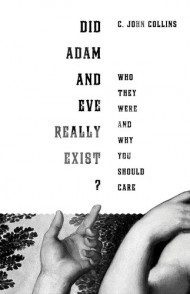Justin Taylor's Blog, page 325
May 27, 2011
God & Country (Updated)
 Kevin DeYoung on patriotism in church:
Kevin DeYoung on patriotism in church:
We should pray for service men and women in our congregations. We should pray for the President. We should pray for the just cause to triumph over the evil one. We are not moral relativists. We do not believe just because all people are sinners and all nations are sinful that no person or no nation can be more righteous or more wicked than another. God may be on America's side in some (not all) her endeavors.
But please think twice before putting on a Star Spangled gala in church this Sunday. I love to hear the national anthem and "God Bless America" and "My Country, Tis of Thee," but not in church where the nations gather to worship the King of all peoples. I love to see the presentation of colors and salute our veterans, but these would be better at the Memorial Day parade or during a time of remembrance at the cemetery. Earthly worship should reflect the on-going worship in heaven. And while there are many Americans singing glorious songs to Jesus there, they are not singing songs about the glories of America. We must hold to the traditions of the Apostles in our worship, not the traditions of American history. The church should not ask of her people what is not required in Scripture. So how can we ask the Koreans and Chinese and Mexicans and South Africans in our churches to pledge allegiance to a flag that is not theirs? Are we gathered under the banner of Christ or another banner? Is the church of Jesus Christ–our Jewish Lord and Savior–for those draped in the red, white, and blue or for those washed in the blood of the Lamb?
In some parts of the church, every hint of patriotism makes you a jingoistic idolater. You are allowed to love every country except your own. But in other parts of the church, true religion blends too comfortably into civil religion. You are allowed to worship in our services as long as you love America as much as we do. I don't claim to have arrived at the golden mean, but I imagine many churches could stand to think more carefully about their theology of God and country. Churches should be glad to have their members celebrate Memorial Day with gusto this Monday. We should be less sanguine about celebrating it with pomp and circumstance on Sunday.
You can read the read of his post, "Thinking Theologically about Memorial Day."
Update: Russell Moore discusses this in his latest podcast for the Cross & the Jukebox, looking at "God Bless the USA" by Lee Greenwood.
The Hound of Heaven: Christopher Yuan's Testimony
Testimony below from Christopher Yuan and his parents. The story is told in more detail in Out of a Far Country: A Gay Son's Journey to God. A Broken Mother's Search for Hope.
Did Adam and Eve Really Exist?
 Jack Collins's new book, Did Adam and Eve Really Exist?: Who They Were and Why You Should Care (Crossway), is now available. I hope this book strengthens our confidence in the biblical narrative, advances the discussion, and helps some to correct their course.
Jack Collins's new book, Did Adam and Eve Really Exist?: Who They Were and Why You Should Care (Crossway), is now available. I hope this book strengthens our confidence in the biblical narrative, advances the discussion, and helps some to correct their course.
You can read a detailed outline of the argument and the introduction online.
Here is the publisher's description:
"We need a real Adam and Eve if we are to make sense of the Bible and of life," argues C. John Collins. Examining the biblical storyline as the worldview story of the people of God, Collins shows how that story presupposes a real Adam and Eve and how the modern experience of human life points to the same conclusion.
Applying well-informed critical thinking to questions raised by theologians and scientists alike, Collins asserts that only a real man could participate in God's plan to use his human partners to bring blessing to the whole creation, a blessing that requires "redemption" for all people since sin entered the world.
Did Adam and Eve Really Exist? addresses both biblical and Jewish texts and contains extensive appendices to examine how the material in Genesis relates to similar material from Mesopotamian myths. Collins's detailed analysis of the relevant texts will instill confidence in readers that the traditional Christian story equips them better than any alternatives to engage the life that they actually encounter in the modern world.
Here are some of the endorsements:
"Few scholars are better equipped than Professor C. John Collins to provide a well-informed, up-to-date assessment of what may and may not be known about Adam and Eve. With clarity, Collins offers a balanced discussion of the relationship between Genesis 2–3 and current theories on the origins of the human race. Recognizing the limitations of human knowledge, he highlights the vital contribution made by the Genesis account for understanding the human predicament. Marked by both erudition and sanity, here is a book worth reading."
—T. Desmond Alexander, Senior Lecturer in Biblical Studies and Director of Postgraduate Studies, Union Theological College
"It is not often that a book in this controversial field of human origins takes seriously both the Bible (in terms of textual exegesis, literary form, and theological coherence) and science (in terms of its findings and its theoretical possibilities). Jack Collins does both with graciously applied scholarship, conviction, and humility, making very clear where biblical faithfulness requires us to be uncompromisingly affirmative, and where there is room for varying opinion over possible scenarios that could be consistent with such biblical conviction."
—Christopher J. H. Wright, International Director, Langham Partnership International; author, The Mission of God
"Collins has done a great service to the church by providing us with this crucial volume. It will quickly prove to be a vital resource for pastors, students, and laypeople around the world. With careful scientific analysis and convincing biblical exegesis, Collins graciously answers the skeptics and thoroughly reinforces the historic Judeo-Christian position."
—Burk Parsons, Associate Pastor, Saint Andrew's Chapel, Sanford, Florida; editor, Tabletalk magazine
"Dr. Collins has presented a careful defense of the existence of the historical Adam and Eve. This methodologically rigorous study reflects a critical awareness of contemporary discussions on both biblical and extra-biblical literature and further contributes to the wider discussion on science and religion. Perhaps more importantly, he has successfully demonstrated the theological significance of this traditional reading, all the while using language that an informed layperson can digest and engage. This work deserves to be widely circulated."
—David W. Pao, Chair of the New Testament Department, Trinity Evangelical Divinity School
"Working through questions of myth and history, Bible and science, harmonization and complementarity, Collins brings fresh arguments to stimulate wide-ranging thought and improved appreciation of the way the first chapters of the Bible affect the whole."
—Alan Millard, Emeritus Rankin Professor of Hebrew and Ancient Semitic Languages, The University of Liverpool
"I could hardly imagine a more honest book on this controversial topic. Its openness (in a user-friendly format) is no naivety—it is combined with undeniable competence on the ancient Near East, recent literature, and methodological discussions. Standing firm on vital issues, accepting diversity on others, the reader meets in C. John Collins a sensitive and godly guide."
—Henri A. Blocher, formerly Gunther Knoedler Professor of Systematic Theology, Wheaton College Graduate School
May 26, 2011
The Piper-Warren Interview
John Piper and Rick Warren were to sit down for a one-on-one conversation at the Desiring God National Conference in October of 2010, but unforeseen circumstances prevented Warren from being there. On May 1, 2011, they were able to film the interview, which lasted an hour and a half.
Piper explains that he read The Purpose-Drive Life with a fine-tooth comb and significantly disagreed with certain Reformed critiques of the book. The heart of the interview is Piper seeking clarification and confirmation from Warren on various doctrines and distinctives. Piper explains his intentions like this:
My aim in this interview is to bring out and clarify what Rick Warren believes about these biblical doctrines. In doing this my hope is that the thousands of pastors and lay people who look to Rick for inspiration and wisdom will see the profound place that doctrine has in his mind and heart.
You can read the rest of his post here, which sets the stage for the video. (I'll update the post with audio if they make it available.)
Introduction
3:29 The glory of God.
7:16 David Wells and the weight of God's reality.
9:00 Would you write the book the same today?
12:00 The sovereignty of God.
18:47 How do you speak of God's sovereignty in the presence of tragedy?
22:01 How do all things work for bad for those who reject Christ?
24:14 Do you hedge on Larry King?
27:00 Unconditional election.
30:18 The importance of eternity.
34:42 How do you conceive of eternity: in heaven, on earth?
38:53 What is the Gospel?
42:00 What did Jesus achieve on the cross?
43:40 Repentance.
50:50 Why don't you call yourself a Calvinist?
53:09 Propitiation.
54:39 Prevenient grace.
60:01 Total depravity.
61:03 Hell.
69:10 Eternal destiny of those who never heard.
72:40 The extent of the atonement.
77:00 Do unbelievers always do the devil's bidding?
78:40 Your view of the Bible.
82:40 Expository preaching and doctrinal depth.
88:10 Rick Warren's sacred trust.
Did the Princetonians Invent Inerrancy?
From the conclusion to Carl Trueman's paper, "Is the Princeton View of Scripture an Enlightenment Innovation?"
In looking at the doctrine of scripture from the early church to the seventeenth century, a number of points emerge.
First, the notion that the very words of scripture are inspired, truthful, and exactly what God wants them to be, is present from the Apostolic Fathers onwards.
Second, that scripture is inspired by the Holy Spirit, and exactly how this inspiration takes place, are two separate points, and theologians exhibit a variety of opinions on the latter, ranging from early theories of dictation, through the crucial distinction between revelation and inspiration made by Thomas Aquinas, to the broad consensus statements of the post-Reformation Protestant confessions. Arguably, this consensus reflects the Bible's own account of inspiration and inscripturation, which is not tied to one single model.
Third, the kind of critical textual questions to which the Princetonians were responding arise in the seventeenth century as a result of Protestant prioritizing of scripture over church tradition in terms of the former's sufficiency and perspicuity, and the linguistic and textual studies which Protestantism's scripture principle brought in its wake. It is at this point that significant discussion of autographs and scribal error develops, alongside an understanding of textual history (though, as we noted, these issues were adumbrated in the correspondence of Augustine to Jerome).
As a result, if the Princetonians are to be seen as innovators, it cannot be in terms of their
articulation of the concept of inerrant autographs or in their concern for verbal inspiration and the connection of this to notions of truth. On these points, they stand within an established tradition of Christian discourse which goes back beyond the Reformation to the early church.
In addition to this paper, readers interested in seeing if inerrancy was taught in church history prior to Princeton should check out John Woodbridge's Biblical Authority: A Critique of the Rogers/McKim Proposal.
Good Advice for Slow Readers
For a few years now, I've used a reading plan that has helped me get through a pretty good number of books every month, despite my setback of being a slow reader. For the frustrated and overwhelmed readers, here are a few suggestions.
Here is an outline of his suggestions:
Read in 15 minute segments.
Get up 40 minutes earlier.
Use the odd times to read.
Read widely and more than one book at a time.
Work hard to finish a book.
You can read the whole thing for an explanation of each point.
The best book addressing issues like this, and more, from a Christian perspective is not yet published. But it will be this fall: Tony Reinke's Lit! A Christian Guide to Reading Books.
Old School Marriage (Updated)
Douglas Wilson explains the old school (i.e., biblical) view of marriage.
A marriage requires two components or elements. The first is old school sexual intercourse and the second is a socially recognized set of vows, committing the couple to a legally recognized and protected state of marriage. If one or the other is missing, then so is the marriage.
To use the language of philosophy, each of these is a necessary condition for marriage (without which, not), but not a sufficient condition. In other words, you can't have a marriage without the presence of both of these elements, but the mere presence of one of them does not constitute or create the marriage. The absence of either will result in no-marriage, but the presence of either does not automatically result in marriage. You must have both together.
Update: Wilson answers some questions about the vow aspect of marriage in this new post. Conclusion:
If marriage is honorable among all, and the bed undefiled (Heb. 13:4), and if God will judge whoremongers and adulterers, then this means that marriage must be socially and legally visible. There must be something other than the sexual activity which distinguishes the sexual activity which we must all honor, and the kind that God will judge. Given the nature of the case, therefore, there must be vows. The Bible doesn't tell us what formula the vows must use, but it does require us to develop something that is suitable for the occasion. This is something which our fathers did, and which we are forgetting. We should stop that. We should renew our vows.
God & Country
 Kevin DeYoung on patriotism in church:
Kevin DeYoung on patriotism in church:
We should pray for service men and women in our congregations. We should pray for the President. We should pray for the just cause to triumph over the evil one. We are not moral relativists. We do not believe just because all people are sinners and all nations are sinful that no person or no nation can be more righteous or more wicked than another. God may be on America's side in some (not all) her endeavors.
But please think twice before putting on a Star Spangled gala in church this Sunday. I love to hear the national anthem and "God Bless America" and "My Country, Tis of Thee," but not in church where the nations gather to worship the King of all peoples. I love to see the presentation of colors and salute our veterans, but these would be better at the Memorial Day parade or during a time of remembrance at the cemetery. Earthly worship should reflect the on-going worship in heaven. And while there are many Americans singing glorious songs to Jesus there, they are not singing songs about the glories of America. We must hold to the traditions of the Apostles in our worship, not the traditions of American history. The church should not ask of her people what is not required in Scripture. So how can we ask the Koreans and Chinese and Mexicans and South Africans in our churches to pledge allegiance to a flag that is not theirs? Are we gathered under the banner of Christ or another banner? Is the church of Jesus Christ–our Jewish Lord and Savior–for those draped in the red, white, and blue or for those washed in the blood of the Lamb?
In some parts of the church, every hint of patriotism makes you a jingoistic idolater. You are allowed to love every country except your own. But in other parts of the church, true religion blends too comfortably into civil religion. You are allowed to worship in our services as long as you love America as much as we do. I don't claim to have arrived at the golden mean, but I imagine many churches could stand to think more carefully about their theology of God and country. Churches should be glad to have their members celebrate Memorial Day with gusto this Monday. We should be less sanguine about celebrating it with pomp and circumstance on Sunday.
You can read the read of his post, "Thinking Theologically about Memorial Day."
The Civil Wars
 If you haven't yet heard of The Civil Wars, they are an indie folk duo in the general market who are writing and singing some beautiful songs.
If you haven't yet heard of The Civil Wars, they are an indie folk duo in the general market who are writing and singing some beautiful songs.
Amazon has the MP3 album for Barton Hallow on sale today for $3.99.
HT: Z
Here's a video for the title track:
For Quality Time with Your Kids You Need Quantity Time
Justin Taylor's Blog
- Justin Taylor's profile
- 44 followers




